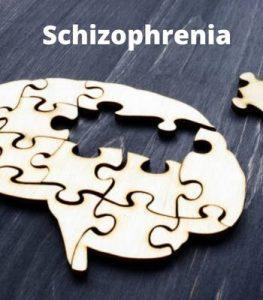Fully detail about schizophrenia in Qatar
- Category causes
Schizophrenia
Definition
Schizophrenia is a mental illness that the person gets born with but the symptoms start to appear in adolescents and early adulthood. It is a disorder that affects the secretion and use of Dopamine and other neurotransmitters.
Symptoms
Symptoms include psychosis, mood changes, deterioration of cognitive functions, loss of motivation, loss of interest, lack of self-care, and deterioration of social skills.
Psychosis: having Two life’s; the real one and the one made inside the person’s brain and losing the ability to distinguish between what is real and what is made of the person’s mind. This can include beliefs and thoughts and loss of logic in reasoning and connecting the dots, auditory hallucinations usually different voices continuously criticizing the person or telling him/ her about others, commenting, and sometimes ordering. It can also cause visual or tactile hallucinations but less commonly than auditory.
The person gradually starts to isolate himself from the external world and more focused and concentrating on his internal world. He is more focused on protecting himself or his family from whatever beliefs or dangers he believes and gradually become more and more suspicious. Behaviors start to be less explainable and disorganized.
Disorganized thinking and disorganized speech.
Effective communication can be broken.
So answers are partially or completely disconnected from the questions, maybe the main reason for the low quality of speech is interrupted thinking patterns. Extremely disorganized or abnormal motor behavior. Persons with Schizophrenia seem to lose control of the way they are acting, for example, either hard to sit in one place, do sudden moves or they do bizarre positions or start a fight, they don’t care about general manners and instruction or they don’t care about what other people think about them.
The mood becomes low or fearful or hostile or apathetic. They get withdrawn from people around them or activities they used to do. Self-care and self-hygiene and caring for others start to deteriorate. It makes the person also lose the appropriate social manners they used to know before.
Difficulty sleeping and low energy levels and difficulty concentrating or learning new things.
Complications
Schizophrenia is a serious mental health disorder and it should not be left untreated:
The person can commit suicide especially if they were highly functional before the illness.
Crime is a possibility and it is done based on the delusion that the person or someone they love is being harmed.
They might suffer from anxiety disorders and obsessive-compulsive disorder (OCD), or depression.
- Drinking problem and drug addiction.
- Inability to work or attend school Financial problems and homelessness
- Lack of social life.
- earth and medical problems.
Symptoms in teenagers
It can be as same symptoms as adults with schizophrenia but it’s harder to be diagnosed in teenagers because symptoms can be confused with Behavioral problems in adolescents.
Symptoms include:
- Pullout from friends and family environment.
- Low academy performance.
- Trouble sleeping.
- Swing mood (up and down)
- Reduce motivation.
Risk Factors:
Although the precise cause of schizophrenia isn’t known, certain factors seem to increase the risk of developing or triggering schizophrenia, including:
- Having a family history of schizophrenia
- Some pregnancy and birth complications, such as malnutrition or exposure to toxins or viruses may impact brain development
- Taking mind-altering (psychoactive or psychotropic) drugs during teen years and young adulthood
Treatment
The treatment plan should be done by a specialist psychiatrist and psychologist.
Schizophrenia is a disorder where medications are a must. Antipsychotics are used to block the excess dopamine and can help decrease hallucinations and abnormal beliefs or make them shakable.
Antidepressants can be added later because they sometimes help with the other symptoms of withdrawal and energy.
Anticholinergics are sometimes used to oppose the side effects that could be experienced by antipsychotics.
TMS can be used as well to decrease hallucinations and help patients have a better quality of life.
Psychotherapy can be used once the patient is stabilized and his insight into the illness is back to rehabilitate him to stay integrated into society and fight the depressive symptoms he might experience.










